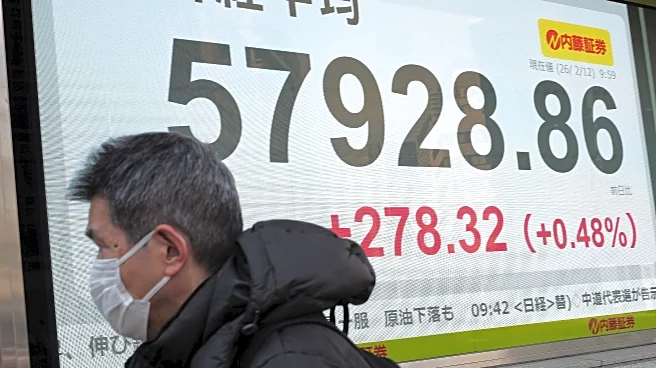What is the story about?
What's Happening?
The Regional Trial Court Branch 3 in Guiuan, Eastern Samar, has denied the application by EMIR Mineral Resources Corporation for a Writ of Preliminary Injunction and/or Temporary Restraining Order against environmental leaders in Brgy Bitaugan, Homonhon Island. The mining company sought to prevent local communities from protesting against their tree-cutting activities, which the community believes threaten their water source. The court ruled that the company failed to demonstrate sufficient injury to justify silencing the community's actions. The decision is seen as a victory for environmental justice, particularly in the context of climate crisis.
Why It's Important?
This court decision is significant as it upholds the rights of local communities to protest against activities that may harm their environment and health. It highlights the ongoing struggle for environmental justice and the protection of natural resources. The ruling may encourage other communities facing similar challenges to stand firm against corporate pressures. It also underscores the importance of legal systems in safeguarding environmental rights, which can have broader implications for public policy and community activism.
What's Next?
The environmental leaders and communities in Homonhon plan to remain vigilant and continue their advocacy for environmental and climate justice. They aim to ensure that laws and policies are not used to suppress dissent. The decision may lead to increased support from environmental organizations and legal assistance centers, further strengthening the community's position against the mining company's activities.
Beyond the Headlines
The case reflects a broader global trend where environmental defenders face intimidation and legal challenges for protecting their ecosystems. It raises ethical questions about corporate responsibility and the balance between economic development and environmental preservation. The decision may inspire similar movements worldwide, emphasizing the need for sustainable practices and respect for indigenous and local communities.


















